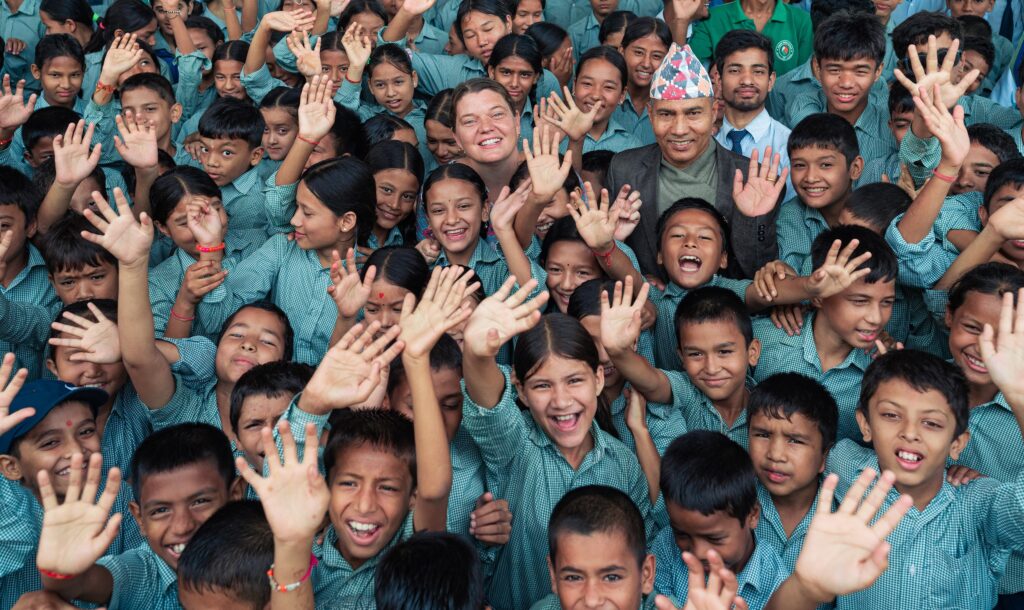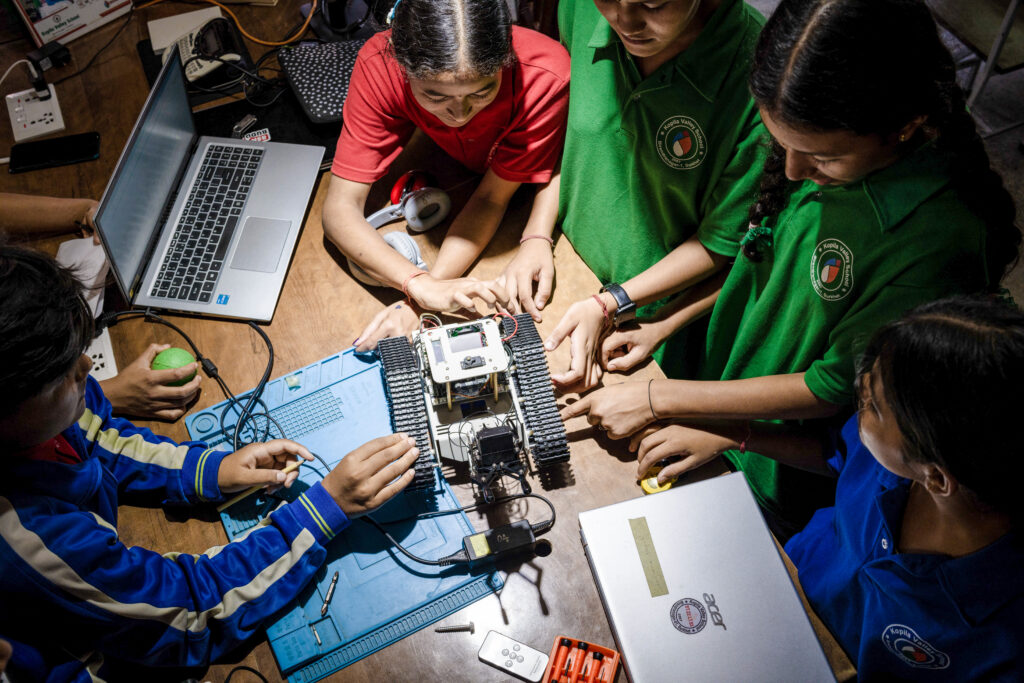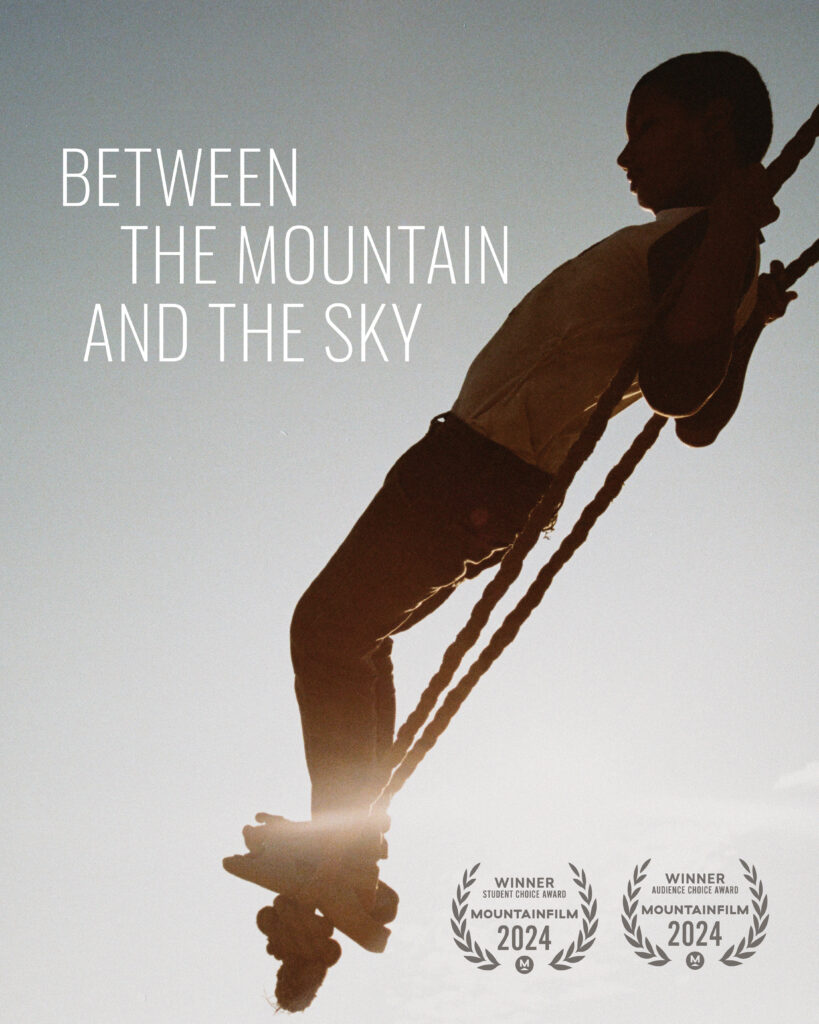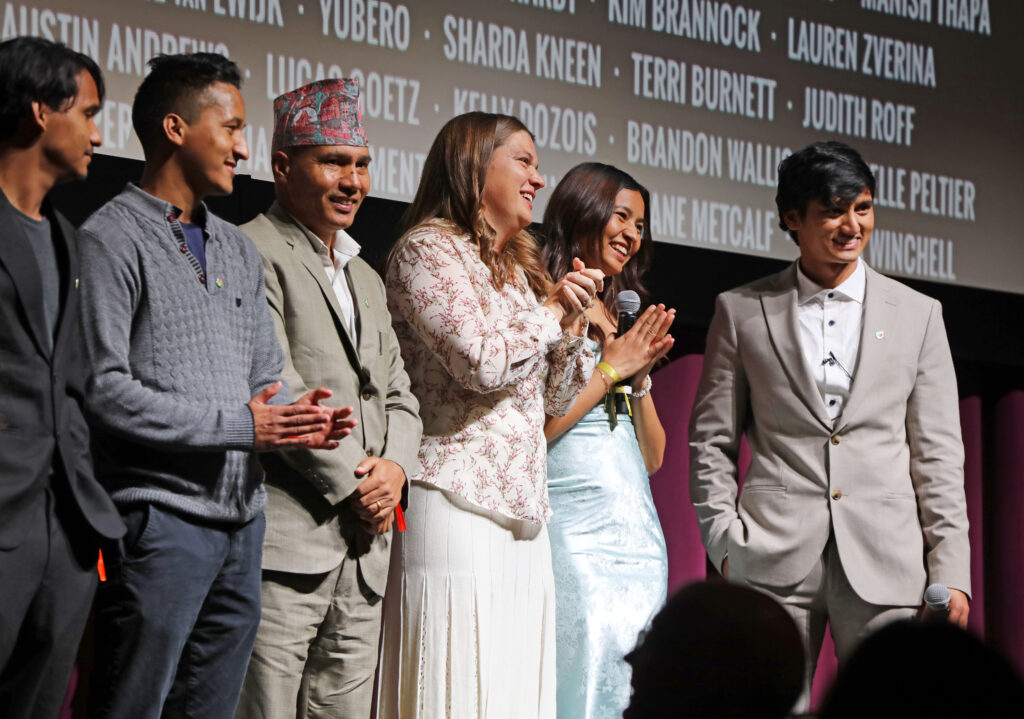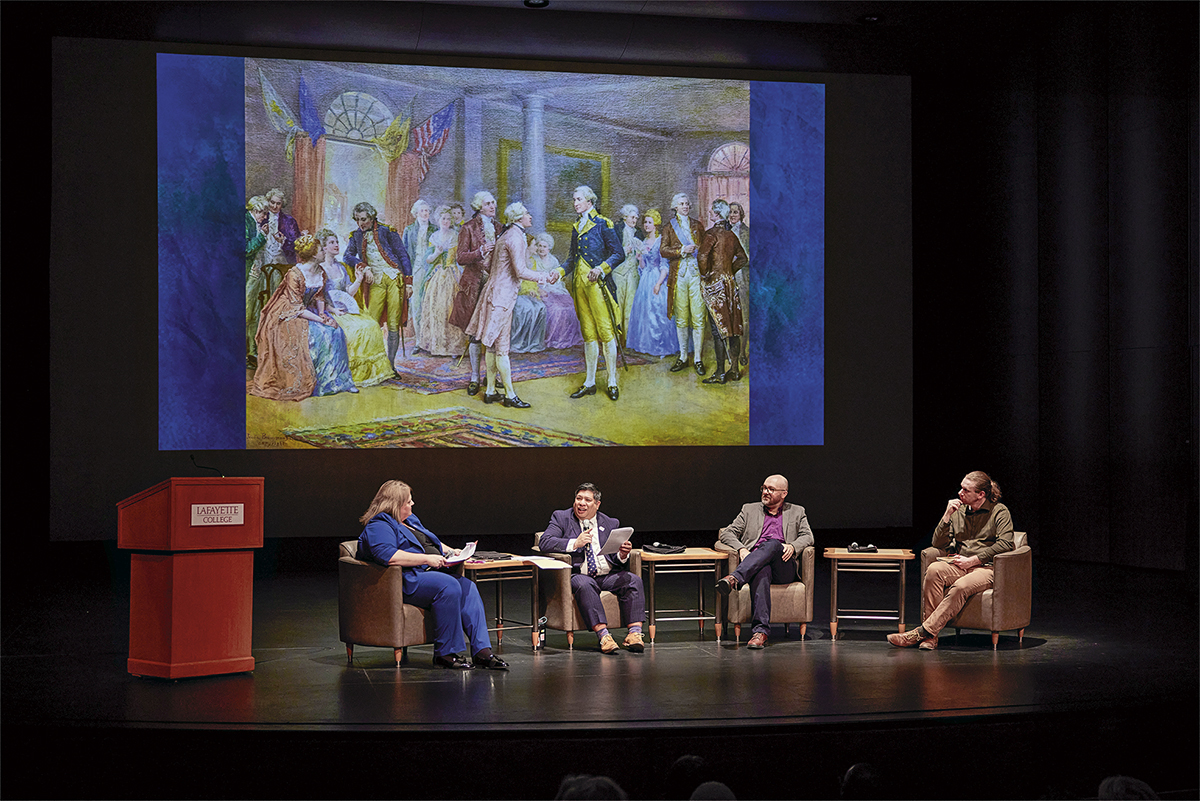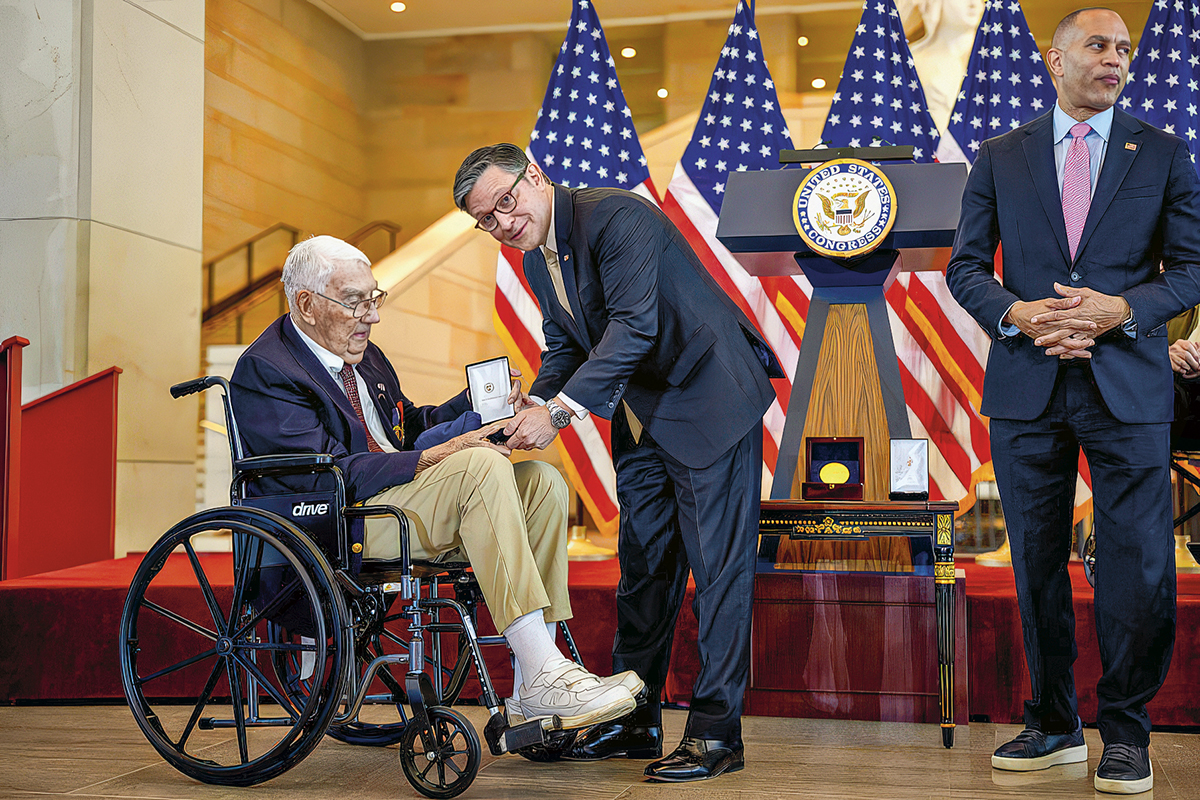Found family
Shova Malla ’22 and Upendra Pandey ’23 were shaped by their childhoods in Nepal—and the people who dedicated their lives to service.
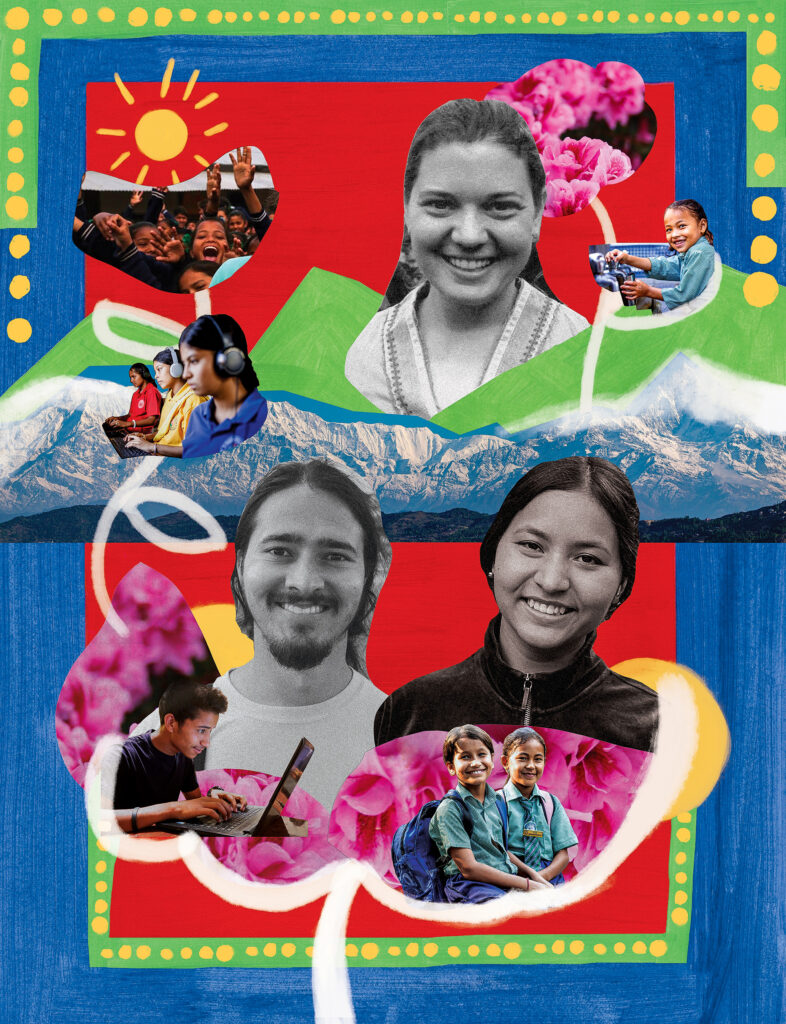
Illustrations by Franziska Barczyk
Somewhere in the mountains of Nepal, there’s a flower, bursting through the earth.
In the district of Surkhet, where Shova Malla ’22 grew up at the Kopila Valley Children’s Home, a similar promise for something beautiful has been growing for nearly 20 years. Kopila, which means “flower bud” in Nepali, was chosen by co-founder Maggie Doyne to represent hope in a place that had seen so much poverty and war.
When she arrived in Nepal two decades ago, Doyne was an 18-year-old American on a gap year exploring the world. What she found, instead, was the harsh reality of life in Nepal: a country emerging from a civil war that had displaced thousands, an orphanhood crisis leaving children to fend for themselves, and an education system inaccessible to even the most destitute.
Working with Malla’s uncle, Tope Malla, on the ground in Nepal, Doyne gave up the idea of college for herself. Instead, she contributed her life savings to their new dream, building Kopila Valley Children’s Home. In a new documentary titled Between the Mountain and the Sky, which has been making its way around film festivals worldwide, viewers get a firsthand look at their journey and the joy and power of Kopila Valley.
What Doyne and Tope built was a loving home, a groundbreaking educational institution, and a global nonprofit organization that has created a new way of life for hundreds of Nepali children.
As the first generation to live and learn at Kopila Valley, Malla, like her classmates, accelerated. She eventually landed at an institution 7,000 miles away: Lafayette.
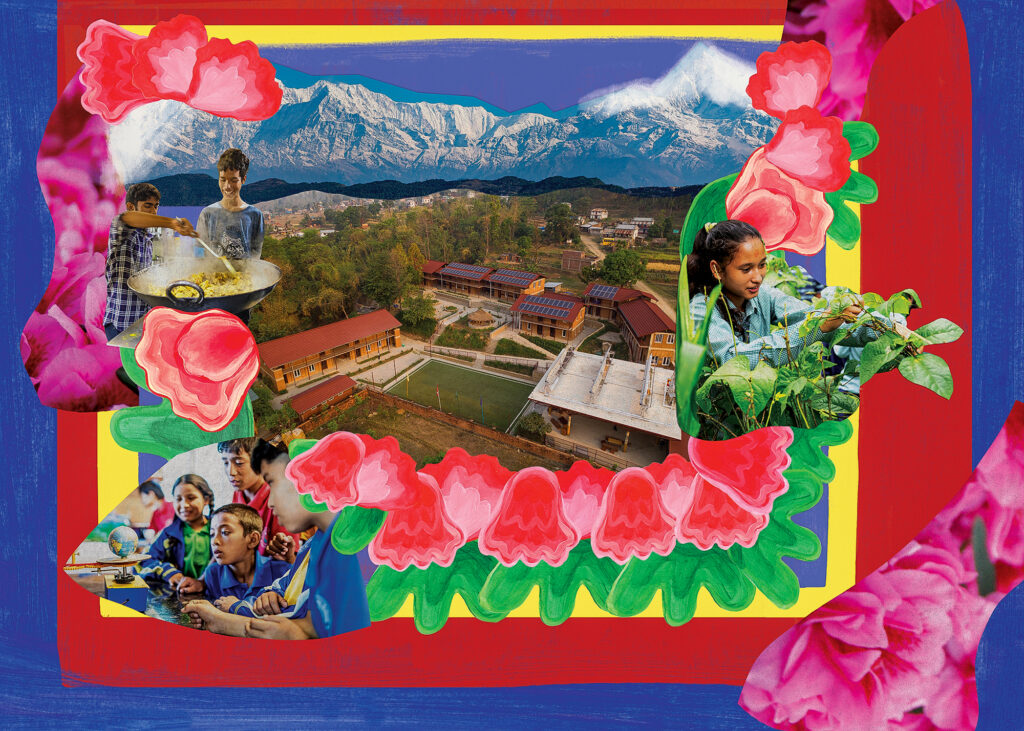
Growing up, Malla and her family were among those displaced by a decades-long civil war in Nepal between the Maoists and government forces. When Maoist soldiers took up residence in their home, they sought refuge in India. Doyne first met Tope volunteering at an orphanage there in 2005; the Malla family encouraged Doyne to learn more about Nepal, where she visited the next year. It was then and there that Doyne realized the depth of poverty.
Her philanthropy started with one child, noticed by Doyne breaking rocks in a riverbed, who needed the equivalent of five American dollars to attend the local school. Doyne sponsored the girl’s education, but soon realized that Nepal’s crisis was larger than learning— thousands of children were left without family ties across the country due to illness, poverty, and war.
Together, Tope and Doyne built the home from the ground up, establishing connections and partners in the local Surkhet community. They began working to obtain guardianship for children who had lost their family or could not be taken care of by their family, moving them into the Children’s Home for a chance at a more stable life.
Malla’s parents started working at Kopila Valley, allowing her and her siblings to be some of the first to move into the Children’s Home. “I’ve been there from the very beginning,” Malla says. “I’ve seen it from nothing to where it is now, and it’s just mind-blowing.” After the opening of the Children’s Home, Doyne opened the Kopila Valley School, as well as a Women’s Center.
Upendra Pandey ’23, who attended Kopila Valley School alongside Malla starting in sixth grade, lived down the road from Kopila Valley’s campus. While he was not a full-time resident, the Kopila Valley community was a major building block of his childhood.
“Some of my closest friends are from the Children’s Home,” Pandey says. “It was a big part of school and after school, because we played sports there and hung out with friends.”
The differences between Kopila Valley and the local school system were stark. At the beginning, Kopila Valley couldn’t offer grades 11 or 12, requiring Malla and Pandey to return to Surkhet’s school for those years.
“Maggie has different ideas about what she wants her kids to learn,” says Malla, explaining that Kopila Valley encourages more of a creative and immersive learning experience. At Kopila Valley, the availability of international volunteers often expanded the students’ access to materials, such as American novels for English class. Malla’s classes would revolve around skits, debates, songs, and other interactive learning tools.
In contrast, the Surkhet school was more formulaic. “The local school didn’t have great resources, and the way we were taught just wasn’t very exciting. I love learning so much, so it was disappointing for me,” she says.
Malla continued to cultivate her intellectual curiosity, studying STEM as well as English, her favorite subject. But it was her experience with Kopila Valley that made her ask the question that would change her life: What was the world like outside of Nepal?
Toward the end of Between the Mountain and the Sky, a former resident of Kopila Valley moves into his American dorm room. He expresses to the camera that this achievement, in his culture, is the equivalent of skipping five generations.
For the Nepali, as for so many facing hardship around the world, it takes generations to build financial and societal wealth. Twenty percent of people in Nepal lived below the poverty line in 2023, and many women and girls are forced into early marriage in order to survive. The ability to attend college or pursue careers abroad is a far-reaching dream for many children born in this century.
“Higher education is very inaccessible to people because of where their families come from,” Malla says.

“I always try to represent Kopila Valley and Lafayette wherever I go, because without those places, I wouldn’t be where I am today,” says Shova Malla ’22.

“Their families don’t have wealth because they’re farmers and their land is up in the mountains, which is of no real value. So I think they have to make a really difficult choice: ‘Do I study, or do I start working and help support my family?’”
By providing a loving and stable home, comprehensive education, and the ability to be free from stressors of poverty, Doyne has put the children under her care, including Malla and Pandey, on a metaphorical rocketship.
“I believe that communities know how to solve their own problems,” says Doyne, attributing their success to the Nepali people and her co-founder, Tope, along with the local team of teachers and caregivers. “I understood from day one that I don’t have what it takes as an outsider to solve these complex problems.”
Through Kopila Valley School and its parent nonprofit, BlinkNow, Doyne brought knowledge and access to resources to the process—and contributed what made the most difference: dedication and love.
“I lead a lot through the lens of motherhood,” she says. “When children have their human rights met, all the other multidimensional issues surrounding poverty, violence, hunger, and protection of women and kids, immediately change.”
In other words, the fundamental power in having a family. “Even if we didn’t have a lot, we had everything,” Malla says. “The sense of closeness was just so beautiful because despite all the things that make us different, we are a family.”
An international volunteer at Kopila Valley first planted the seed for Malla to take the leap across the ocean to attend college.
“She was like ‘If you work hard, you’ll make it. We’ll have a plan,’” Malla says. After traveling to the capital city of Kathmandu for her English language certification,
Malla began narrowing down her college applications.
There was already a connection with Lafayette, as Thea Dekker ’22, daughter of BlinkNow chief of staff Ruth Dekker, had already been accepted there. Dekker had visited Kopila Valley numerous times as a teenager, bonding with Malla and the other adolescent girls and forming a Women’s Empowerment Group that still runs today.
The power of that relationship and the inclusive nature of Lafayette’s international student body and programs convinced Malla to commit to Lafayette.
“I remember the day I got my acceptance. It was during a monsoon in Surkhet with three days of severe thunderstorms and rain, and we didn’t have electricity because the poles were down,” Malla says. “I knew the decision had come out, but I didn’t know the results yet. It was the best news ever.”
The following year, Pandey also decided to apply to Lafayette.
“I had one person who could tell me what it was like there, so it was easier for me to learn about the College,” Pandey says. “Being accepted was a big deal. At least where I’m from, it’s a big deal to get a scholarship and come to the United States to get an education.”
Dekker notes that the intimate size of Lafayette and its community-oriented environment helped with the transition. “The admissions counselors who worked with Shova and Upendra were really open to hearing their full stories,” says Dekker, “and how much they had worked to have the opportunity to go to school in the United States.”
The influence of Kopila Valley ran both ways. The experiences gained in Nepal encouraged Dekker to give back during her time at Lafayette, where she majored in international affairs and psychology, and got involved with programs like Lafayette Initiative for Malagasy Education. “I had the opportunity to learn so much gratitude,” says Dekker.
Over the years, the Lafayette community has continued to have strong ties to BlinkNow. The Kirby family, who have been alumni and generous supporters of the College for generations, have found a worthy cause in the nonprofit.
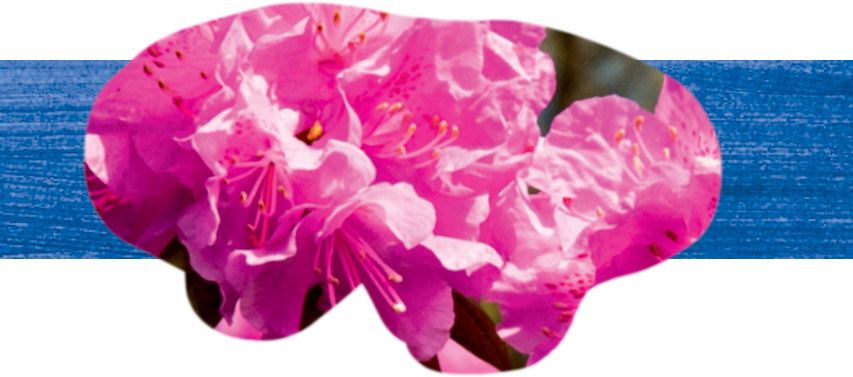
Dillard ’81 and Adrienne Kirby were first introduced to Doyne’s work when their son saw her speak at his middle school in New Jersey, nearly 18 years ago. (Doyne is originally from Morris County, N.J.) The Kirbys were impressed by Doyne’s tenacity.
“Maggie’s passion, intellect, and focus as a young woman were unique. Over time, she has developed into an astute CEO of a multimillion budgeted operation,” Kirby says. “She has never forgotten her roots in Mendham, N.J., nor many of the friends who supported her early and continue to do so today.”
While accepting her award for CNN “Hero of the Year” in 2015, Doyne said, “We cannot lose sight of the task at hand.” To that end, she funnels energy and support across the ocean into ensuring her kids become the best version of themselves. “They become the change agents,” Doyne says. “You can break out of that cycle of poverty, and you’ve got a generation of kids who were loved, nurtured, educated, and who are in turn caring for the community and the next generation of kids.”
Malla, who double majored in economics and environmental studies, now works in executive search for the climate tech and industrial sectors in New York City. Pandey, who came to Lafayette to study psychology, fell in love with film during his studies and is employed at a marketing agency in Bethlehem, Pa. Other residents of Kopila Valley have attended schools across the United States and the globe, while many are giving back to their community in Nepal. One graduate is studying to be the first OB-GYN in the region, while another is a member of the national soccer team.
Malla’s heart is never far away from Kopila Valley and the next generation.
“The part that never leaves me is Nepal, and the kids in Nepal. That connection will never go away,” Malla says.
For those who are inspired to follow in Doyne’s humanitarian footsteps, she has one piece of advice: “Find what breaks your heart,” Doyne says.“Go there, and try to do something.”
Learn more about BlinkNow and Kopila Valley at blinknow.org. Between the Mountain and the Sky will be released digitally in 2025.

